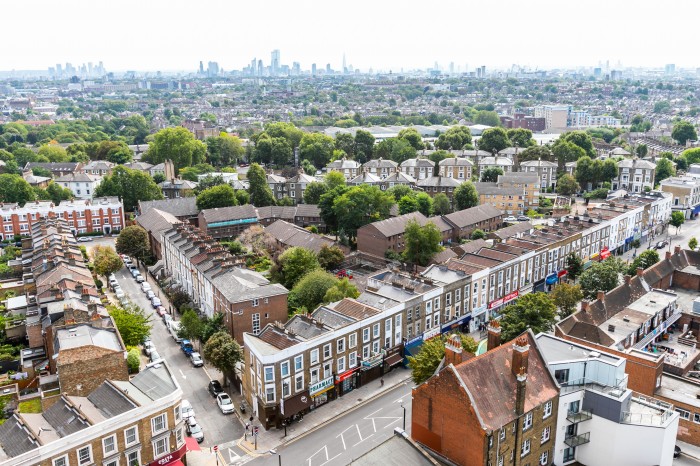1st Oct 2022 New Smoke & CO Alarm Regulations
Posted in September 2022
New Smoke and Carbon Monoxide Alarm regulations have recently been announced by the Government and these amendments will need to be followed by landlords and agents from 1st October 22022.
The Government has recently announced that the new Smoke and Carbon Monoxide Alarm (Amendment) Regulations 2022 will be coming into force on 1st October 2022.
The aim of these new amendments is to bring equality between the social and private sectors ‘in respect of safety’.
The Smoke and Carbon Monoxide Alarm (England) Regulations 2015 first came into force on 1st October 2015.
The new rules that need to be followed by landlords and agents from lst October 2022
From this date onwards, all relevant landlords must comply as follows:-
Firstly, ensure that at least one smoke alarm is equipped on each storey of their homes where there is a room used as living accommodation. This has been a legal requirement in the private rented sector since 2015.
Secondly, ensure a carbon monoxide alarm is equipped in any room used as living accommodation which contains a fixed combustion appliance (excluding gas cookers).
Thirdly, ensure that smoke alarms and carbon monoxide alarms are repaired or replaced once informed and found that they are faulty.
What is classified as living accommodation?
The Government defines a room as "living accommodation" if its "primary purpose" is living, or if it's a room "in which a person spends a significant amount of time".
The penalty for non-compliance of the new guidelines
These requirements will be enforced by local authorities, who can impose a fine of up to £5,000 where a landlord has failed to comply with a remedial notice.
The Smoke and Carbon Monoxide Alarm regulations
A review was conducted in 2018 which found that the existing regulations for the private sector had created “a positive impact on the number of alarms installed” and therefore, suggested the regulations should be expanded to cover both the private and social rented sector.
According to a report by the National Housing Federation, the majority of social housing associations (95%) already comply with the regulations.
The new regulations amend the Smoke and Carbon Monoxide Alarm (England) Regulations 2015, to extend some of the rules currently in place, and ensure that they also apply to social housing providers.
Landlords and agents are also advised to consider these regulations alongside other relevant safety laws, such as the Housing Act 2004, the Fire Safety Act 2021 and the Building Safety Act 2022.
What type of alarms need to be installed?
The regulations do not state that alarms need to be hardwired into the building, according to the guidance. However, smoke alarms should comply with British Standards BS 5839-6 and carbon monoxide alarms should comply with British Standards BS 50291.
It has also been recommended that landlords and agents should use alarms with "sealed for life" batteries instead of alarms with replaceable batteries, wherever possible.
Who bears the responsibility for testing the alarms?
Landlords and agents need to ensure that the alarms are checked and are fully working on the "day the tenancy begins if it is a new tenancy." The landlord or agent will also need to keep proof/record of this check.
Tenants are also being advised to replace batteries where required. But if the alarm still does not work after doing so, they should inform their landlord or agent.
Location of alarms
The guidance stipulates that the regulations do not specifically state where the alarms need to be installed. Although, it does outline that, "in general", smoke alarms should be "fixed to the ceiling in a circulation space", such as landings or halls etc.
Furthermore, it advises that carbon monoxide alarms should be "positioned at head height, either on a wall or shelf, approximately 1-3 metres away from a potential source of carbon monoxide".
Fixed combustion device
According to the guidance, a fixed combustion device is defined as "a fixed apparatus where fuel of any type is burned to generate heat". So typically either powered by gas, oil, coal, or wood. A fireplace that is purely decorative would not fit this definition.
A gas cooker is defined as "apparatus heated by gas and used for cooking food” so is excluded from these regulations.
Not long to go…
With only a short while to go before these new rules are in place, it’s essential and a matter of urgency that landlords ensure their properties are fully compliant. For any advice or further information, please contact our Property Management Team on blackstock@davidandrew.co.uk
Latest posts
Free property valuation
With three local offices we have unrivalled market knowledge. A senior member of the David Andrew team will come to your property to provide an accurate sales valuation or rental valuation and offer comparable properties we have sold in order to justify our valuation and to show how we can achieve you the best possible price.
Register with us
Register today to receive instant alerts when we add properties that match your requirements.


